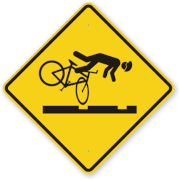|
I know some people just don’t like writing or editing or whatever but paring down your resume as much as possible is time well spent not only for improving your hiring chances but also to identify yourself what exactly is important from your experience and to actually memorize your accomplishments for when you need to speak about them in-person.
|
|
|
|

|
| # ? May 31, 2024 05:46 |
|
I think summaries are a waste of space, but this one in particular..quote:Vision-driven change agent with exemplary record of technical project and operations leadership success. Proven talent for aligning business strategy and objectives with established technical management paradigms to achieve maximum operational impacts with minimum resource expenditures. Results-focused team leader who champions innovative solutions to drive continuous improvement, mitigate project risks, analyze data, and provide key insights to inform strategic plans. Exceptionally dedicated professional with keen interpersonal, communication, and organizational skills for the diverse modern workplace. reads like an ironic parody written by a junior writer for a straight-to-netflix “tech startup comedy” also, cut down to a page
|
|
|
|
PRADA SLUT posted:I think summaries are a waste of space, but this one in particular.. Only business drunk execs are allowed to talk like that, when the rabble do it’s unbecoming
|
|
|
|
I think something often overlooked when people write resumes: sound like a person not a buzzword robot
|
|
|
|
PRADA SLUT posted:I think summaries are a waste of space, but this one in particular.. That reads like it's chatgpt generated tbh
|
|
|
|
Chewbecca posted:That reads like it's chatgpt generated tbh I thought it would be mean to say it but yeah.
|
|
|
|
themaninblack posted:Haven't had a ton of success with this resume, paid the top person on Fiverr to make it (thinking that might have been money wasted). Worried that it is too heavy on buzzwords, too long, etc. Would appreciate any feedback. Fiverr Freddie hosed up his verbs. You bullet points need to start with action words, and most of the time they should be past tense: sold, managed, commited, accomplished, led, directed, created, etc. It starts out good but then goes to Ongoing (an adverb, move this within if you still want it) and then Speadhead (which is present, use Spearheaded or Drove instead), and you end it with Learning (the present participle or gerund, I am not good enough to know which but I know it's not past!) There is some advice that says you're supposed to make your current job present tense, and while I disagree and think it reads better as all being past tense, but they should all share a tense within a listing. Make them align so they're all past tense, which will mean ending in ED unless it's a weird one like Built.
|
|
|
|
Lockback posted:I thought it would be mean to say it but yeah. I'm BYOB as hell and I still said it lol
|
|
|
|
themaninblack posted:Haven't had a ton of success with this resume, paid the top person on Fiverr to make it (thinking that might have been money wasted). Worried that it is too heavy on buzzwords, too long, etc. Would appreciate any feedback. The last job on there should either be eliminated or changed to multiple bullet points. All the rest of them focus on one thing per bullet point, that one lumps 4 things together under one.
|
|
|
|
Thank you everybody for reading my post and offering detailed critiques and suggestions! I really, really, really appreciate it and hopefully one day soon so too will my bank account. Responses and ruminations below - I'm tackling the resume specific stuff first and the process stuff second:CarForumPoster posted:You prob didnt get an immediate reply ITT because your role isnt one of the roles the hiring managers ITT probably have much experience with. I've only hired for a tiny company, so hiring an HR person is out of my wheel house. Grain of salt and what not. Still 10/10 job description and resume post so I wanna reply and help if I can. quote:- I always advise when I cant clearly diagnose: Google your name, does your email seem professional, is there something about the info you're providing that could be misinterpreted if someone went hunting for more info elsewhere. I once googled someone and found out they were the leader of a trump super pac. One which was implied to be a sham by a political blogger and for which the financials and mission didnt reflect well on that candidate. quote:I cannot figure out why that resume gets rejected 97% of the time. I'm really glad you brought this up and it is something that I've been pondering lately. First of all, I do think that I can back those stats up reasonably well, e.g.: retention was a question of losing 40% fewer people over a given set of periods, a matrix re-design directly led to a quantifiable reduced in recorded management overhead hours, productivity is some combo of performance and time savings (for example, reducing how much time people spend in meetings), performance tracks directly to schedule / project deliverables (though sometimes it's fudgy because production actually doubled and part of that was a new performance management approach - but I view that as interview talk), etc... So I do feel that I am not bullshitting - although I am very open to counterarguments; my intent isn't to protect my ego, it's to get hired. HOWEVER, this all said, it has occurred to me that it may look like bullshit. But the thing is...everyone and their mother (even my mother) tells you to quantify as much of your resume as possible, and alas, these are the quantifications I have. My experience of the last decade has been at messy startups (50-200p) whose leadership regarded the idea of metrics not unlike the trad sports community regarded advanced analytics (but this context is also how some of the results were possible - certainly, at a big company, it would be a different story). How would you suggest I tackle this to look less bullshitty? Lockback posted:It might not be obvious your company B was a 5 year stint with promotions instead of a bunch of short jobs. That might be getting your resume auto trashed. How you have the dates makes it seem like you kept leaving at a glance. Interesting observation about the dates and Company B. I've tried different ways of presenting them as far as under one company or under two, hadn't thought too much about the internal divisions. Is it just the fact that the dates stick out obviously on the right and you have to go into more detail to understand that they're not separate jobs? I mean, yeah, that's been hard coming to terms with haha. I've got over ten years of HR experience, but almost 4 of it was from 2008 to 2011, which on the inside I feel is still relevant but as noted above, have already started to realize it does not! Can you tell me more about what gives you the 5+ years feel and the inflated title Spidey sense? They are technically not, though I'll toggle between the HRBP and HR Manager titles for Company C depending on the role (I was the sole HR person until I later trained some help). What about the template is more engineer or technical -geared? And how radical departure would you suggest? I've considered trying the 'highlight' approach, where instead of the profile it's the big accomplishments across all the positions, and then the roles listed afterward. Also - I would love further thoughts on the soft metrics. What makes them soft, what can I try differently? And to the process: Eric the Mauve posted:A 3% call rate on a resume that is not obviously bad can only mean applying for roles that are getting hundreds of applicants (OP: are you applying only to WFH roles?) or it's getting screened out by software before a human ever sees it. What is driving this frustration in large part is the fact that, when it comes to job boards, I have been taking care to apply to largely on-site or local hybrid roles, specifically targeting those on e.g., LinkedIn that show fewer (often significantly) than 100 applicants, in order to improve my odds. As far as software screening it out, I receive a lot of rejection emails, which I have been given to understand indicate that a person has looked at your resume (or else that the role has been filled and all remaining applicants are getting a mass rejection email), which if true suggests I'm beating the software but not the reviewer, which in turn makes me wonder whether I should hew to the JD less than I have been. (more on this below) fawning deference posted:What is your job hunting process? If you are simply scouting job boards and applying to listings that seem doable, you should consider changing your approach. Otherwise, you will always be competing with hundreds or even thousands of other applicants for a position everyone is applying for. Without assuming you're already doing the following things, I have three bits of advice. Cold-calling notwithstanding, yes to all of that. I try to leverage my contacts and network as much as I can, and have planted some seeds in place where immediate opportunities were lacking but future payoff was a possibility. Unfortunately, it has simply been the case that there hasn't been much within my network on the HR side that fits (several roles for the taking if I move to LA or Colorado, but that is not in the cards). 98% of my resumes are tailored to the specific job. I've even been extra tailoring them over the last month or so - like, taking phrasing directly out of the JD and molding my bullet points around them, but I'm not sure that it's worth the extra time and whether it the looks weird to an actual person. Lockback posted:3. You should do a combination of quality and quantity. If your job hunting full time, I usually say find 3-5 jobs a week that you spend time crafting a resume and individualized cover letter for targeting jobs that are dream jobs or very gettable, and the rest you use your stock resume (though you probably want a couple resumes if your targeting similar but different job titles). If you try to tailor every job you'll burn out too fast. Good advice. I've been aiming for 5-10 per weekday, generally, but have written only 3 cover letters since September, all where they were required (or recommended). Your comment about the "stock" resume brings me back to the question of how much I should be tailoring my resume, generally. I've noticed it can take me 30+ minutes to really align my resume with a JD (okay, I use ChatGPT to gauge this), which I have been doing more of lately in an attempt to increase my success rate, which is time I could spend writing a cover letter for the dream / gettable jobs. Should I just...not work extra hard to tailor most resumes and save it for the notable ones? ----- I'd also love some input from people on the following resume elements: Profile statements - for or against, and why? Do the company descriptions, which I have begun to omit (per resume 3 and 4), add anything useful, or is omitting them the right move? What about the subheading role descriptions? I like them for a general overview and for taking less space than a bullet point. What are everyone's thoughts on margins? Mine are just a little taller (.75) and a little narrower (1.1) to facilitate mobile viewing, but I see resume templates that are just .5 all around and poo poo like that, even though consensus seems to be not to reduce margins to cram more stuff. Grateful for your help, goons.
|
|
|
|
themaninblack posted:Haven't had a ton of success with this resume, paid the top person on Fiverr to make it (thinking that might have been money wasted). Worried that it is too heavy on buzzwords, too long, etc. Would appreciate any feedback. This is just too much. Too many words, too many education accolades (that are not directly related to what you're applying for), too many volunteer roles (that are not directly related to what you're applying for), too many sections (interests are not necessary, certs can be balled under education, etc), and so on. Too many things that don't need to be there. You just need to pare this down to its essence (of ideally no more than a page, given you have two actual jobs listed). If you really want to show that you volunteer because it'll give you a leg up (else why mention it?), pick two. Is your CPR and Stop-the-Bleed certification relevant to your target role? Probably not - but if it is, the AWS certification almost certainly isn't! Your technical certificates can probably (but maybe not because that's not my department) drop the bullet points. Also, there are formatting inconsistencies. For example, your first and last listed jobs have organization followed by title, but all the ones in the middle have title followed by organization.
|
|
|
|
Habibi posted:Since the start of September through last week, I've submitted exactly 301 applications (I've got a spreadsheet lol). Thanks for the detailed reply. My intuition is that to remove the bullshit, your quantities must obviously tie to a business KPI and should be specific (i.e. has common definition) and measurable. In order of how good these metrics are: 1) Revenue/Profit/Recurring Cost Savings >5x your Salary. 2) For Startups: DAU/MAU/GMV/Churn Rate 3) Things that drive revenue, for example qualified sales leads, conversion rate or project metrics like CPI, SPI, major critcial path/milestone accomplishments. I'd put cost savings 1x-5x your salary savings here. (For one time savings, should be 2x-10x.) Projects you worked on start to finish (2+ years long) are good fodder if you had a major role. 4) Things that build long term value that stacks, generally such as non recurring engineering. Story points, velocity. So "performance" and "team performance" are not specific. How much "performance" do I need to make $100K revenue? That this is your first metric and cited throughout sets and maintains the bullshitty tone. "Time-to-productivity" sounds like a cost savings, but you dont say how much cost ($) you saved. 40% "retention" is not specific enough, but could be a good metric. Maybe something like: Improved employee turnover 40% YoY by creating non-managerial career paths for technical staff and implementing data-driven employee engagement. "raised engagement by 20%" is meaningless "morale and productivity" is not obviously measurable With the additional context, it seems like your experience is in helping transition the people processes of a company from a pirate ship to a navy. I think thats a valuable thing to sell to companies of that size, byut that message doesnt come through with faux-metrics soup. Also the buyers of that tend to be founders, and good founders like good metrics. [EDIT] I think its valuable to include metrics relevant to a core job function. It helps people calibrate on where you are, maybe in sum of your career. For example a quick way to calibrate that I'm above an IC and below a big company director in terms of people management might be: Reviewed ~2000 resumes, conducted ~400 interviews, hired ~25 people, fired ~5 people. It tells them other things too, e.g. does that ratio make sense in their experience? If yes, then I'm probably not bullshitting. [EDIT] Lastly, HR generally cant drive those 4 things, so you can't be vague as to the connection if you're claiming that they were improved because of your efforts. quote:I'd also love some input from people on the following resume elements: I like a one line company description if it helps tell your story and isnt obvious what they do. Most people don't include them so they're not expected. Profile statement: 1-2 line summary at the top to set the stage can be useful, but if its buzzwords and puffery it is not useful. CarForumPoster fucked around with this message at 16:11 on Jan 3, 2024 |
|
|
|
"Engagement" is probably an engagement survey which is an HR-domain thing. I'd make sure to add in a little flavor on how it was measured though. It's a good thing if you really increased engagement from the 30s into the 70s though.Habibi posted:
Try putting just the start dates, not the start and end dates. It'll help it stand out. Also maybe make sure the company and the start-end dates at that company are the biggest and bolded, let the dates you switched roles be a different font. Basically make it clear you worked there for a long time and got promoted. If you have HR experience that isn't listed, list it. Just don't have details. HR Drone Company XYZ June 2012-May 2015 As for format, it's heavy on words and what boxes you check, light on what your bringing to the table and (most importantly) it kinda is daunting to look at at first. For an HR position, a 2 column like this might be more engaging https://resumegenius.com/wp-content/uploads/hr-coordinator-resume-example.png I think you're ok with 2 pages given your experience, but for a senior HR role I'd want a resume that was pleasant to look at, which isn't as important for engineering.
|
|
|
|
Thanks again for your time, attention, and help! Especially CFP and Lockback. You rock.CarForumPoster posted:Thanks for the detailed reply. My intuition is that to remove the bullshit, your quantities must obviously tie to a business KPI and should be specific (i.e. has common definition) and measurable. In order of how good these metrics are: quote:So "performance" and "team performance" are not specific. How much "performance" do I need to make $100K revenue? That this is your first metric and cited throughout sets and maintains the bullshitty tone.  What do I do with that? What do I do with that?And things like engagement / morale are not meaningless in the HR domain. I would also put to you that if you had to attend 4 fewer hours of meetings per week, put up with 2 fewer hours of HR or company bullshit, and spend an hour or two less on training newbies or answering questions, you'd be some amount more productive. quote:With the additional context, it seems like your experience is in helping transition the people processes of a company from a pirate ship to a navy. I think thats a valuable thing to sell to companies of that size, byut that message doesnt come through with faux-metrics soup. Also the buyers of that tend to be founders, and good founders like good metrics. quote:[EDIT] I think its valuable to include metrics relevant to a core job function. It helps people calibrate on where you are, maybe in sum of your career. Lockback posted:"Engagement" is probably an engagement survey which is an HR-domain thing. I'd make sure to add in a little flavor on how it was measured though. It's a good thing if you really increased engagement from the 30s into the 70s though. And yeah, this is what I kinda did with Company D - just the titles / dates. quote:As for format, it's heavy on words and what boxes you check, light on what your bringing to the table and (most importantly) it kinda is daunting to look at at first. For an HR position, a 2 column like this might be more engaging Out of curiosity, does it look as daunting and word heavy when viewed with the margins intact? A two column resume? Intriguing idea. I've stayed the hell away from two column resumes (and other gimmicks) because it seems the consensus view is that they're appropriate for visual design type sectors OR recent grads and not much more. But...I am willing to give it a shot. That said, could you elaborate on my resume being 'light on what I'm bringing to the table?" In what regard? Habibi fucked around with this message at 21:33 on Jan 3, 2024 |
|
|
|
Habibi posted:This is tricky with my most recent company, as everything revolved not around cost savings but performance improvement (just had to do with the nature of the company and the circumstances it had found itself in), which boiled down to how quickly project deliverables were achieved. And so, for example, we could track a 20% acceleration compared to prior and baseline performance as of the time those learning programs were deployed. Did it help us save money? Yes, but the company objective wasn't to save money, it was to execute an absurdly aggressive timeline in order to meet [$10s of millions of] customer contracts, build credibility, and attract investment or huge industry partners before the org reached the point of bankruptcy, and everything was gauged within that context. Think of 'performance improvement' as their internal name for it. This may be just me, but I think the resume-worthy bit here is "I helped them do it 20% faster."
|
|
|
|
No idea what happened over Christmas but all the jobs in the UK now want security clearance. This is less than convenient for someone who doesn't qualify for even the lowest level. It's probably even more of a pain for all the recruiters who keep contacting me for these jobs.
|
|
|
|
Habibi posted:Thanks again for your time, attention, and help! Especially CFP and Lockback. You rock. You're welcome! Use industry standard terminology, emphasize the schedule savings. Usually a schedule savings is much better than a cost reduction for the reason you pointed out. Measuring the relative delivery dates of deliverables to baseline is called schedule performance index or SPI. A movement from 1.1 to 0.97 is a big deal on a $20+M multiyear project that already underway, and only a 13% change, so the 20% number coming from HR procedures is sus and the lack of using an industry specific term means your ability to measure it is sus. Habibi posted:And things like engagement / morale are not meaningless in the HR domain. I would also put to you that if you had to attend 4 fewer hours of meetings per week, put up with 2 fewer hours of HR or company bullshit, and spend an hour or two less on training newbies or answering questions, you'd be some amount more productive. It sounds like you measured hours saved. Hours saved might be a proxy for productivity, but its not the same thing. If you save 25 people 4 hours per week of meetings 50 weeks per year you save 5000 hours or ~2.5 person-years of work. Its great to save 2.5 person-years of work, but for a myriad of reasons it isnt the same thing as "productivity" by any definition I can contemplate. If my wife feels loved by receiving flowers, and I give her more flowers, I shouldn't then say "I loved my wife 10% more this year". That said, I've only been in charge of measuring this type of stuff for a tiny company, so if "engagement" has an industry standard measure for it (such as eNPS) then use that term of art so they know you're measuring something specific and measurable. Also, everyone knows companies play games with the definitions of metrics, so don't worry too much about that. Just that you're used to defining, measuring, and improving on a real metric that ties to a real business need. Habibi posted:Yes, that has been my recent-ish experience (though, my HR work from '08-'11 was with an established company), but where I actually want to go is to the other side of the navy (although I'm open to the right pirate ship opportunity), and so really I'd like to tell a story that sounds compelling to someone in a larger scale, more developed environment. Have two resumes
|
|
|
|
I'm not actively looking or anything, but I try to update my resume occasionally as I do stuff. Hearing those X times salary guidelines made me think of one bullet point I've been struggling with. An AB test I ran on a feature I've worked on for 1 1/2 years went really well (i.e., a some % bump in weekly retention, with about as solid of an experimental protocol as you could realistically have) and ended up being deployed to production. That should translate to at least a $10 million dollar increase in yearly revenue (this is pretty conservative and assumes a v significant drop-off in the initial effect). To me, that seems like a more impressive number to share than the retention bump, but I worry it's 1) so large it sounds like nonsense (it's like 75 times my salary...) 2) it's making some (reasonable, imo) assumptions about the rest of the year post-test (which, again, seem to be correct but it's ofc hard to perfectly track the continuing impact of a specific change once you've rolled it out everywhere). Alternatively, I could just list the retention bump, but I think if you don't know the size of our user base or how hard it is for any one change to shift retention, then it's not really clear how impactful it is. What would y'all put down? One issue is that I can't share stats that would let people calculate either 1) total users or 2) total revenue, so I have to work within those restrictions. I think this might be my statistics brain that always wants to qualify everything shooting me in the foot, but I wanted to get y'all's thoughts. Hopefully, this won't actually be relevant for a while since I'm not looking to move, but I wanted to get it squared away.
|
|
|
|
Put a percentage retention bump over a time period across a user base of eleventy billion?
|
|
|
|
Habibi posted:Out of curiosity, does it look as daunting and word heavy when viewed with the margins intact? I think a basic two column resume isn't a gimmick, and SA tends to lean heavily in IT and engineering which is not a good fit for a 2 column. I'm not saying it's right for everybody, but it's an idea if your finding yourself not getting bites. I feel like your resume is really hard to parse out, which may be why you're seeing such a hard "I don't get it in 30 seconds so I'm trashing it" type of response. With margins it does look better, though definitely still confusing with the start dates. What I mean is you are heavy on stuff but I am struggling to understand what you'd bring to my company. CFP and I are giving the same advice from two different angles: Looking at your resume it is hard to understand the story your trying to tell. You are chronicling good things (which is good) but doing so in a way that makes it obvious that you're doing good things but really really hard to understand what you'd do for my company. You need to adjust that dial. CFP is rightly telling you to try to standardize your points to make them more readable, I am trying to tell you to work on your narrative so I can understand why I will make more money hiring you vs not hiring you. You need to do both. Also CarForumPoster posted:Have two resumes Two+ resumes that are point focused is so much better than 1 that tries to do everything but instead fails at everything.
|
|
|
|
foutre posted:I'm not actively looking or anything, but I try to update my resume occasionally as I do stuff. Hearing those X times salary guidelines made me think of one bullet point I've been struggling with. Share both thats a killer metric. The revenue is the more important one. Not unreasonable to create a 100x value, that's the magic of software. Its why you can get paid figgies. Created approximately $10M in revenue by developing, A/B testing, and deploying a feature that improved weekly retention by 4%. Only 16 months from requirements to deployment.
|
|
|
|
Habibi posted:98% of my resumes are tailored to the specific job. I've even been extra tailoring them over the last month or so - like, taking phrasing directly out of the JD and molding my bullet points around them, but I'm not sure that it's worth the extra time and whether it the looks weird to an actual person. Looking at this its possible your burning out and over tailoring? Maybe having a couple "stock" resumes that target sectors, and only doing the fine tailoring a handful of times a week. The last time I job hunted seriously I'd spend about an hour 3-4 times a week on 1 job application, and then a bunch of job applications I'd only spend time selecting the right resume template and sending it off. That two tier approach I think makes the most sense, I'm going to spend the time when I want that extra edge but I won't let that stop me from playing the numbers game. Both tiers netted me real bites. Habibi posted:
1. I think profiles are fine, but they should be short and direct and (most importantly) exist to support the narrative that your resume follows. If you can't figure out one that makes sense it probably means you shouldn't have one. 2. They should be included if they support a narrative. Is the business juicy? Is it doing something that is specifically relevant to you? Is there a theme you want to capitalize on? 3. Yeah, I generally say a 1 liner explaining the role. Not everywhere is consistent. If the title is very self-evident then you can omit it. You don't want more than 1 line explaining the role though. 4. No opinion but it should be easy on the eyes and I should naturally be able to find things. When I look at a resume I don't start at the top, I look for the 2-3 things I know I want, then I look at more recent experience, then usually education, then I kinda take in the rest. If I can't find or don't like anything in those steps I bail and move to the next one. To make people feel better about the arbitrary and unfeeling machine Today I went through applicants for a posting I put up before christmas and there were more than I expected, and for some dumb reason workday wouldn't let me sort by application date. So I started with people named something not like anyone on my team and worked out from there until I found 4 good candidates to phone screen then I stopped. Someone might get no response because they were named a too common name. poo poo is arbitrary.
|
|
|
|
CarForumPoster posted:Share both thats a killer metric. The revenue is the more important one. Not unreasonable to create a 100x value, that's the magic of software. Its why you can get paid figgies. Sweet, will do. I appreciate the template sentence too!
|
|
|
|
CarForumPoster posted:Use industry standard terminology, emphasize the schedule savings. Usually a schedule savings is much better than a cost reduction for the reason you pointed out. quote:It sounds like you measured hours saved. Hours saved might be a proxy for productivity, but its not the same thing. If you save 25 people 4 hours per week of meetings 50 weeks per year you save 5000 hours or ~2.5 person-years of work. Its great to save 2.5 person-years of work, but for a myriad of reasons it isnt the same thing as "productivity" by any definition I can contemplate. If my wife feels loved by receiving flowers, and I give her more flowers, I shouldn't then say "I loved my wife 10% more this year".  In all seriousness, yes, you are correct in this, but if I can reasonably correlate time savings (or engagement bumps for that matter) with real improvements in KPI, we'd be talking about productivity, no? Maybe I need to be more explicit about that connection? But that ends up being like a 3 line bullet point. Sigh. In all seriousness, yes, you are correct in this, but if I can reasonably correlate time savings (or engagement bumps for that matter) with real improvements in KPI, we'd be talking about productivity, no? Maybe I need to be more explicit about that connection? But that ends up being like a 3 line bullet point. Sigh.Lockback posted:I think a basic two column resume isn't a gimmick, and SA tends to lean heavily in IT and engineering which is not a good fit for a 2 column. I'm not saying it's right for everybody, but it's an idea if your finding yourself not getting bites. I feel like your resume is really hard to parse out, which may be why you're seeing such a hard "I don't get it in 30 seconds so I'm trashing it" type of response. quote:What I mean is you are heavy on stuff but I am struggling to understand what you'd bring to my company. CFP and I are giving the same advice from two different angles: Looking at your resume it is hard to understand the story your trying to tell. You are chronicling good things (which is good) but doing so in a way that makes it obvious that you're doing good things but really really hard to understand what you'd do for my company. You need to adjust that dial. CFP is rightly telling you to try to standardize your points to make them more readable, I am trying to tell you to work on your narrative so I can understand why I will make more money hiring you vs not hiring you. You need to do both. As to this: quote:Have two resumes quote:Two+ resumes that are point focused is so much better than 1 that tries to do everything but instead fails at everything. How different are we talking here? I already tailor the resume and language to the JD of the role I'm applying for, but I think you're suggesting a more...thematic difference? Less in terms of words used and more in terms of what I am talking about and how I am talking about it?
|
|
|
|
Lockback posted:Looking at this its possible your burning out and over tailoring? Maybe having a couple "stock" resumes that target sectors, and only doing the fine tailoring a handful of times a week. The last time I job hunted seriously I'd spend about an hour 3-4 times a week on 1 job application, and then a bunch of job applications I'd only spend time selecting the right resume template and sending it off. That two tier approach I think makes the most sense, I'm going to spend the time when I want that extra edge but I won't let that stop me from playing the numbers game. Both tiers netted me real bites. quote:To make people feel better about the arbitrary and unfeeling machine You're a monster.
|
|
|
|
For those on the hiring side, how long does it take for you to go from "I want to make this person an offer" to actually delivering an offer? It's now been 15 days since the recruiter said they were going to make me an offer and I still don't actually have an offer, but he says it's still coming. I know we had holidays and stuff with people out of the office, but this feels kind of absurd. It's a small company, and on one hand it's kind of a red flag if something as common place as hiring gets caught in a morass of red tape. On the other hand, maybe the company's recruiter just kind of sucks and doesn't understand the internal process for hiring.
|
|
|
|
In my experience, it can take weeks to deliver an offer after I state my desire to hire someone because HR is
|
|
|
|
My wife and I took a gap year, and now we're preparing to return to the world of the employed. It's been a very long time since I've needed a resume, so I'm pretty much starting from scratch. Two main topics in question; 1) How can I best address the gap year on the resume or in an interview? The time was spent on personal things like helping ailing family, a cross-country move, travel, home improvement, etc. I did some volunteering and continued to serve as the Treasurer for a non-profit, but the latter is already a footnote on my resume. Currently, my resume just starts with the most recent relevant role (below) with the end date 1 year ago. Is this a problem and how should I approach it on the resume or in an interview? 2) I was at my previous employer for ~12 years, serving in multiple roles of increasing responsibility. My first resume draft shows a single employer with three positions and a lot of bullet points detailing accomplishments, most being attributed to the most recent role. Experience prior to this is largely irrelevant for roles I'm interested in. Should I just list the one employer broken down into the three roles? There will be a 6 year gap between graduation and the start date at my most recent employer. Bonus question; how seriously should I take LinkedIn? It wasn't really a thing when I last looked for a job. I loathe it as a platform for professional anything and have zero desire to do any more than list a basic employment history and maintain basic professional connections. I have many actual professional references but I've not asked anyone to offer recommendations on this platform.
|
|
|
|
FISHMANPET posted:For those on the hiring side, how long does it take for you to go from "I want to make this person an offer" to actually delivering an offer? It's now been 15 days since the recruiter said they were going to make me an offer and I still don't actually have an offer, but he says it's still coming. I know we had holidays and stuff with people out of the office, but this feels kind of absurd. It's a small company, and on one hand it's kind of a red flag if something as common place as hiring gets caught in a morass of red tape. On the other hand, maybe the company's recruiter just kind of sucks and doesn't understand the internal process for hiring. Never trust a recruiter about anything. That said, 15 days is pushing it but far from unheard of, especially since most of those days were in late December. Nowhere near give up time yet. That said, the only smart play is to continue your job search under the assumption you won't be getting this job. The best position you can find yourself in is having multiple offers. The extra confidence it gives you in the negotiating stage is huge.
|
|
|
|
I have been out of work for about 6 months now, but I took a sabbatical after getting laid off from my position of 4 years. I'd just like a second set of eyes on my resume design and copy. I have it all in one figma, but comes to 2 pages at export. Hoping to really spin up the job search at the end of this month. Resume Design Text for quoting I have been told it's great for an eComm designer resume. I'm wondering if I should add that I have been focusing on my side hustle and growing that business and spent two month in Japan on an externship? cheese eats mouse fucked around with this message at 02:44 on Jan 4, 2024 |
|
|
|
Habibi posted:But maybe that's how she would feel. I'm a business side person and if a HR leader told me they improved productivity my immediate first reaction would be "this person is out to lunch" and is taking credit for stuff that isn't actually within their domain. Just say you reduced training/admin burden by X while maintaining standards or whatever.
|
|
|
|
KYOON GRIFFEY JR posted:I'm a business side person and if a HR leader told me they improved productivity my immediate first reaction would be "this person is out to lunch" and is taking credit for stuff that isn't actually within their domain. I'm glad its not just me being an engineer here.
|
|
|
|
Since my outstanding interviews are winding down, before i start applying for more jobs, I'd like some feedback from Resumes pros https://imgur.com/a/Bdw9aJI Most of jobs I'm sniffing around are research-based, so I have toot my own academic achievements since actual industry experience is not extensive
|
|
|
|
Nissin Cup Nudist posted:Since my outstanding interviews are winding down, before i start applying for more jobs, I'd like some feedback from Resumes pros Thoughts: - It seems a little disorganized. I cant at a glance at the first page know whats up with you. - CVs and academic resumes don't follow the same rules as generic resumes for typical ICs. If you're a real-deal Ph.D. you should list your academic achievements, particularly early in your career. Conference papers, patents, journal articles, industry speaking, etc. Theres a certain pomp that benefits you when you're a PhD, it fulfills the mental model of a "real PhD" that many have. - I'd suggest putting your Bachelors and PhD together so someone can, at a glance, see you have both and what theyre in. Remove the bachelor's bullet, put it above PhD. - Make one section for experience, both TA and QC, put in chronological order most to least recent. - Move capstone to your skills section. Thats a neat, practical sounding project. Frames you as a "hands on" type. - Your publications and presentations section seems a little light. You completed a PhD and only made your work known three times? Include your dissertation. - Maybe in your PhD, have a one line bullet that explains to HR people (or your mom) what you research was and the applications of it. This might help recruiters know if you're a "perfect fit" versus a good fit. - Reread the whole thing and ask yourself after each paragraph, how can I say the same thing in fewer words? You're a HARD science PhD. The kind that makes companies 10s of millions or burns R&D. You're always in demand. Remember that in interviews or resume writing.
|
|
|
|
FISHMANPET posted:For those on the hiring side, how long does it take for you to go from "I want to make this person an offer" to actually delivering an offer? It's now been 15 days since the recruiter said they were going to make me an offer and I still don't actually have an offer, but he says it's still coming. I know we had holidays and stuff with people out of the office, but this feels kind of absurd. It's a small company, and on one hand it's kind of a red flag if something as common place as hiring gets caught in a morass of red tape. On the other hand, maybe the company's recruiter just kind of sucks and doesn't understand the internal process for hiring. I'm right there with you buddy. Hiring manager told me on the 17th. Had a follow-up call where they were confused why it hadn't gone through on the 21st. Still nothing in writing as of today. Mine is fed-adjacent though plus the hiring manager got promoted out of the org and her replacement's husband just died of cancer. You never know what crazy poo poo is going on.
|
|
|
|
FISHMANPET posted:For those on the hiring side, how long does it take for you to go from "I want to make this person an offer" to actually delivering an offer? It's now been 15 days since the recruiter said they were going to make me an offer and I still don't actually have an offer, but he says it's still coming. I know we had holidays and stuff with people out of the office, but this feels kind of absurd. It's a small company, and on one hand it's kind of a red flag if something as common place as hiring gets caught in a morass of red tape. On the other hand, maybe the company's recruiter just kind of sucks and doesn't understand the internal process for hiring. Its over xmas, all timelines are off.
|
|
|
|
cheese eats mouse posted:I have been out of work for about 6 months now, but I took a sabbatical after getting laid off from my position of 4 years. I'd just like a second set of eyes on my resume design and copy. I have it all in one figma, but comes to 2 pages at export. Hoping to really spin up the job search at the end of this month. Yea I'd include a one-liner about 6 months of travel or a side hustle so that it doesn't just look like an ongoing, unplanned, 6 month gap. Its fine, good even, to have a side hustle that didnt turn into a FT thing.
|
|
|
|
CarForumPoster posted:Yea I'd include a one-liner about 6 months of travel or a side hustle so that it doesn't just look like an ongoing, unplanned, 6 month gap. Its fine, good even, to have a side hustle that didnt turn into a FT thing. Should be above my current experience, or just the first line in my summary? It's making functional ceramics, so technically still design just in a physical space. cheese eats mouse fucked around with this message at 20:54 on Jan 4, 2024 |
|
|
|
cheese eats mouse posted:Should be above my current experience, or just the first line in my summary? It's making functional ceramics, so technically still design just in a physical space. Just make it your current experience starting at the end of your last job. When you say functional ceramics do you mean engineered ceramics like refractory permanent mold casting molds, ceramic matrix composites, that sort of thing?
|
|
|
|

|
| # ? May 31, 2024 05:46 |
|
CarForumPoster posted:Just make it your current experience starting at the end of your last job. No art ceramics. Mugs and bowls, etc.
|
|
|


























